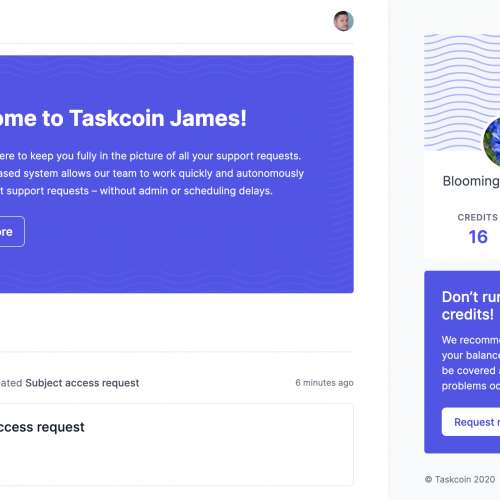Today we’re more aware of our personal data than ever before. And with the advent of GDPR, our rights are increasingly transitioning to the forefront of our minds. The idea that this could be empowering is bandied about. No longer do companies have power over us, providing us with services whilst quietly mining our personal information – at least not without good reason.
For some companies at least, data regulation is increasing the burden of storing individual personal data (something we’ve already started to solve with project Pimple). However, for most, data still provides incredible insight – its value only ever increasing.
If you peer into the blockchain rabbit hole, you’ll find startups piecing together clever new ways to incentivise individuals into sharing their data – or even startups like Simpleweb Studio Block’s TAP that is helping users to take control of their data. Meanwhile, the internet of things has people investing in all things ‘smart’ for their homes, sharing their data in exchange for instant handy life hacks.
We could agree that this is empowering. We choose when and what to share rather than just throwing it out there for free. We share our smart washing machine data with energy companies and in turn they switch it on during the most efficient time of day to help us save energy and money.
The growing connectedness of our world is an incredible opportunity, for society – not just business. But, as has happened many times in the past, we mustn’t overlook the opportunities we have to ensure the benefits of these technologies don’t skirt around the vast populations that could benefit the most – and where their benefit will almost certainly be reflected back positively as well.
With much of the tech world criticised for being non-representative, leading to hilariously awful scenarios such as Siri speech recognition software only working efficiently for white male voices, it’s easy to see how this new world of data could be warped to benefit a few, or perhaps eventually no one at all.
Going back to the example of smart homes, majoritively speaking, the only people that will reap the benefits of these are the wealthiest in society – and therefore the opportunity to learn from the data produced is limited to a very small section of society. So if we’re trying to use this data to impact environmental change, for example, we’re missing a trick.
There are, of course, people attempting to overcome this. An EU project called REPLICATE aims to:
“Increase the quality of life for citizens across Europe by demonstrating the impact of innovative technologies used to co-create smart city services with citizens, and prove the optimal process for replicating successes within cities and across cities.”
Essentially, it’s a project that’s trialling various technologies (from smart dish washers to electric bike schemes) in a variety of homes that are representative of the general population with a view of using the data collected to inform improvements to city and citizen infrastructure.
In fact, Simpleweb’s home of Bristol is the pilot-city for a number of ‘smart city’ interventions in some of its poorest areas.
But we’re still tackling just the tip of the iceberg. You can start to look at the ways in which bias is starting to be recognised and tackled in product design – but we need not forget the impact of these product’s aftermath. The data they collect, and how it can influence future product and decision making.
Recognising this as an opportunity, right now, is how we as businesses, startups, founders and entrepreneurs can seek to maximise both potential and purpose in what we do.
To apply for investment for your early-stage startup, just fill out this application form.



